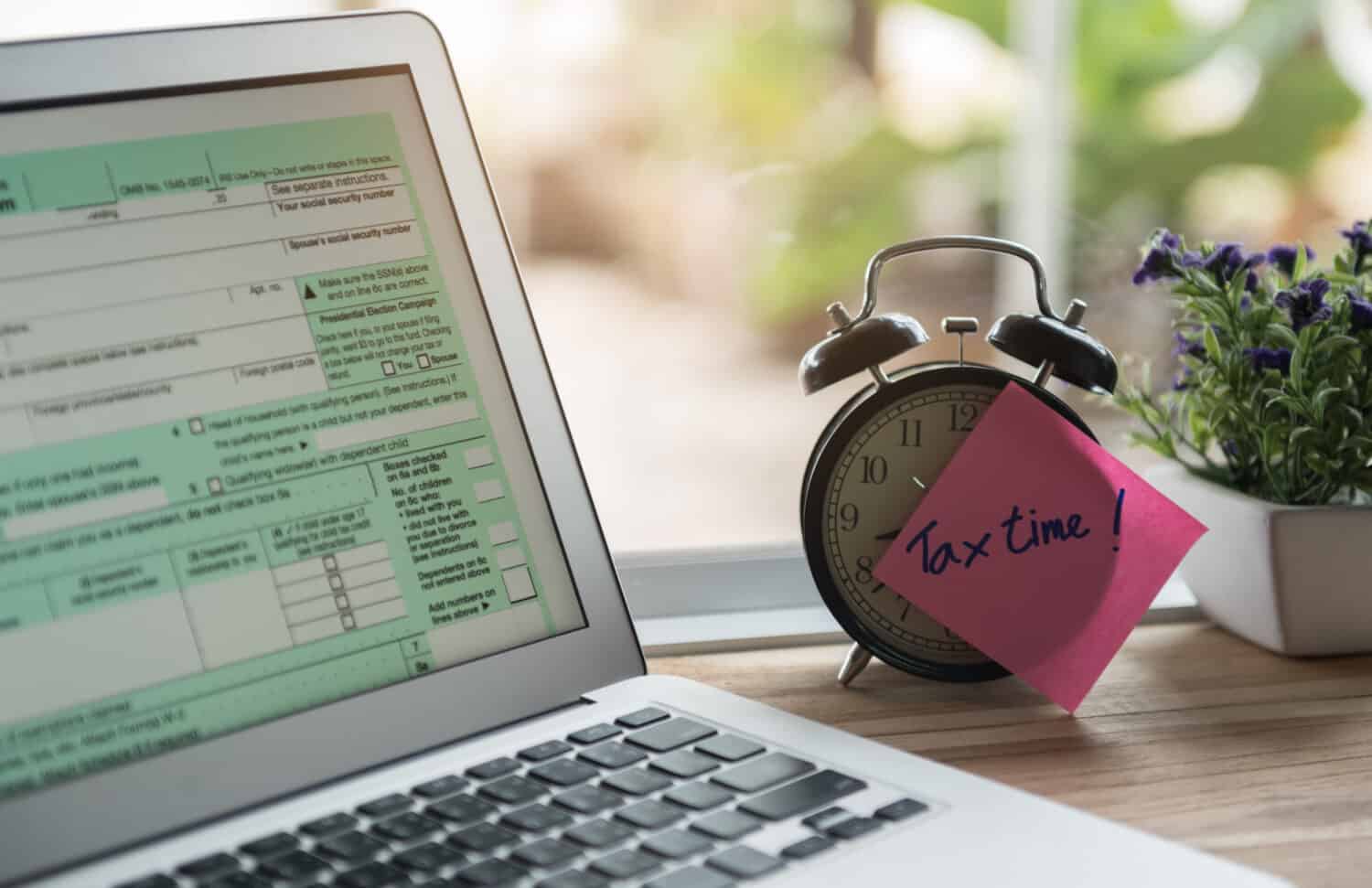Banking, finance, and taxes
When Are Taxes Due? The Deadline For Families, Contractors, and More

Published:

The tax filing deadline for most individuals including employees, contractors and self-employed workers is April 15, 2024.
If you need more time to file your taxes, you can apply for a tax-filing extension that would automatically push your filing deadline to October 15, 2024. You can request an extension by using the IRS Free File page or by mailing Form 4868 postmarked by April 15.
But there are other tax-related deadlines that may differ depending on how you’re classified under the IRS.

If you received a W2-form from an employer, this is what you’d use to report your income and tax withholdings on Form 1040 (U.S. Individual Income Tax Return).
Unless you qualify for an extension, you must file your taxes by April 15.
But qualifying for a tax deadline extension won’t extend the time you have to pay taxes owed. You need to pay taxes by April 15, 2024 to avoid penalties and interest charges.
However, you can apply for an installment payment plan if you can’t pay taxes by the deadline. This would allow you to pay off your balance in a predictable amount per month.
Late payment penalties are usually 0.5% of unpaid taxes for each month or part of a month the tax remains unpaid with a maximum penalty of 25%.
If the IRS delivers failure to pay and failure to file penalties in the same month, the agency will lower the failure to file penalty by the amount of the failure to pay penalty applicable in that month. So instead of a 5% failure to file penalty for the month, the IRS would apply a 4.5% failure to file penalty and a 0.5% failure to pay penalty.
If you file your return is more than 60 days late, the minimum penalty would be $485 or the tax balance due, whichever is less.

The tax filing deadline for contractors, gig workers and self-employed individuals is also April 15, 2024. But if you fall under this category, you may need to file additional forms and pay federal income taxes throughout the year, as well as a self-employment tax.
As a self-employed individual, you’ll get a 1099-MISC, rather than a W2, detailing your income for the year.
In addition to your personal tax return (Form 1040), you’d need to fill out your business profit and losses as well as deductions on Schedule C. Deductions can include home office costs, phone bills, mileage traveled for work and health insurance.
Additionally, you’d report self-employment taxes by filing Schedule SE with your personal tax return. Self-employment tax including Social Security and Medicare taxes is 15.3%. But you may deduct half of this payment from your income.
Many self-employed individuals are also required to make quarterly estimated income tax payments. You can use Schedule SE to help you determine how much you’d owe by each quarterly deadline.
This is how these estimated income tax payment deadlines would break down based on income earned.

Business tax deadlines vary depending on how the business is classified under the IRS.
Taxes are due March 15 for most partnerships and S-Corporations including multi-member Limited Liability Companies (LLCs).
Partnerships must file Form 1065 and S-Corps need to file Form 1120S by March 15, 2024, if they operate as a calendar year business.
However, the tax filing deadline would be different for partnerships and S-Corps that run under a fiscal year. In this case, business tax returns are due by the 15th day of the third month following the end of the tax year.
For instance, if your business runs on an April 1 to March 31 tax year, taxes would be due June 15.
Partnerships and S-Corps that need more time to file can request extensions that would push the deadline to Sep.16, 2024.
Moreover, the rules are a bit different for businesses classified as C-Corporations.
Taxes are due for most C-Corps on April 15, 2024. C-Corps must file Form 1120 by April 15 if they operate as a calendar year business.
But if a C-Corp. operates on a fiscal year basis, tax returns are due by the 15th day of the third month following the end of the tax year.
So if a C-Corp. runs on an April 1 – March 31 tax year, taxes would be due by June 15.
C-Corps that need more time to file can request an extension that would bump the tax filing deadline to October 15, 2024.

Taxes for most Americans are due on April 15, 2024. If you need more time to file, you can request an extension that would push the deadline to October 15, 2024. You can do this online by using the IRS Free File system or by mailing Form 4868 to the IRS, postmarked by April 15.
But keep in mind that you need to pay income taxes due by April 15, even if the IRS approves you for an extension. Failure to pay can result in penalties and interest charges. If you can’t pay your taxes in full by the deadline, you can apply for a payment plan online. This would let you pay off your balance in predictable monthly installments.
Freelancers, contractors, gig workers and self-employed individuals may need to pay estimated taxes throughout the year. And businesses have varying tax filing and payment deadlines based on their tax classifications under IRS rules.
In any case, you should consult a tax professional if you need extra guidance.
Credit card companies are pulling out all the stops, with the issuers are offering insane travel rewards and perks.
We’re talking huge sign-up bonuses, points on every purchase, and benefits like lounge access, travel credits, and free hotel nights. For travelers, these rewards can add up to thousands of dollars in flights, upgrades, and luxury experiences every year.
It’s like getting paid to travel — and it’s available to qualified borrowers who know where to look.
We’ve rounded up some of the best travel credit cards on the market. Click here to see the list. Don’t miss these offers — they won’t be this good forever.
Thank you for reading! Have some feedback for us?
Contact the 24/7 Wall St. editorial team.